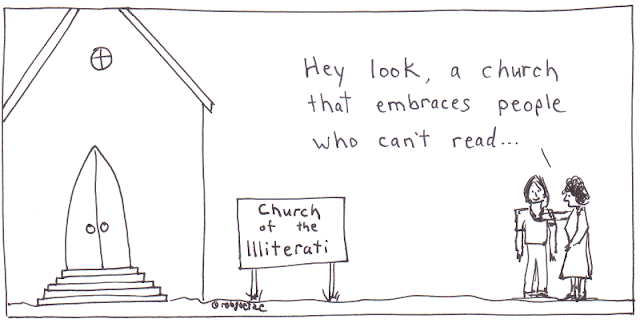This church declares itself clearly as a place that welcomes and embraces those who can't read.
Well, maybe. Their sign does raise several questions:
If this really is a church for people who cannot read, what does it matter what the sign says? Or would it be better to call it "the church of non-readers"? Now it is possible, of course, that this church has specifically used the name "Illiterati" to reclaim the name, perhaps similar to the way queer has been reclaimed by some lgbtq+ groups, or like the church which calls itself the Scum of the Earth Church.
And then one might ask, how would someone who doesn't read know this is the church for them? Would some kind of image be helpful? Or would people find out about it via word of mouth and radio ad campaigns?
And does the Church of the Illiterati embrace everyone? We don't know, as they haven't said. And this means that overall, they are still
an uncertain space. Except to non-readers. Maybe.








